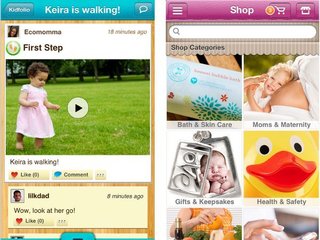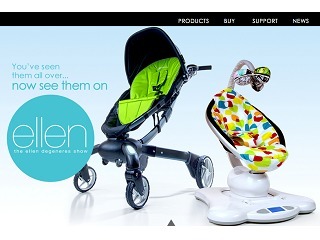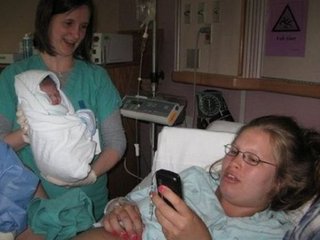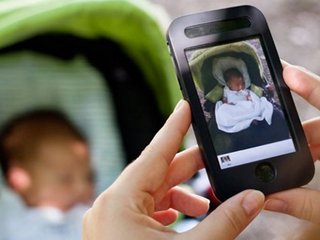
What women want: Communities for health
Alt12's apps have seen 9M downloads as women flock to communities for women's health topics

Navigating the world of health and safety during pregnancy is easy-peasy. You just have to remember a few simple rules:
1) Don’t drink alcohol.
2) But a little is safe.
3) But no one knows for sure.
4) Stay relaxed.
5) But don’t go into spas or saunas that have chemicals floating around.
6) And don’t get a foot massage or you’ll send yourself into early labor.
7) Don’t eat soft cheese.
8) Or deli meat.
9) Or sushi.
10) Or peanut butter.
11) Or anything.
12) Except for lettuce.
13) Don’t eat that either.
14) Don’t be married to someone who works with industrial chemicals.
15) Don’t sleep on your back.
16) Don’t sleep on your mattress since it’s dripping with flame retardants.
17) Same for your pillow and your sofa.
18) And your floor.
19) Try not to sit or lie down on any surface.
20) Don’t breathe in the chemicals in the upholstery in your car.
21) Just don’t drive.
22) But you can’t ride a bike either.
23) So just stay home.
Just follow these simple rules, and you can enjoy a safe, healthy pregnancy.
What the world does not have a shortage of is terrifying warnings of death and disaster to every pregnant woman who doesn’t follow the rules. Even though the rules literally change every day, and often stand in direct opposition to other rules. If pregnant women could just encase themselves in giant plastic hamster balls for the duration of their pregnancies, they would—except that plastic is estrogenic and an endocrine disruptor.
What do women want when they’re pregnant, thinking of getting pregnant, or raising a child? They want to know that they’re not alone.
Women connecting with women
When Jennifer Wong, co-founder and CEO of women’s health social network Alt12, found out she was pregnant, she was dismayed by the options that were available to her.
“A lot of the pregnancy apps and sites out there were made by men or doctors. They took a male-centric and medical-centric view,” said Wong. “It wasn’t what I wanted. From a woman’s perspective, that wasn’t the most important thing for me. I wanted to know if what I was going through was normal. I wanted to connect with other women to find out what they were going through. I wanted advice that didn’t scare me.”
To that end, Wong created BabyBump, a mobile social network for all things pregnancy-related. Users who download the app can get access to information related to their pregnancies, as well as a robust social network that includes a plethora of different groups ranging from birth clubs and trimesters to single parents, older parents, younger parents, military parents, dads’ groups, and more. Users can also write in their journal and share pictures of their pregnancies, all from their phone.
“I felt like as a working mom, I didn’t have a lot of resources readily available, but I had my phone,” said Wong. “Even in 2009, no one was interested in women’s health in mobile. The end goal for me was to provide a system for women to solve all their needs, at whatever position in life.”
Alt12’s beginnings
Wong ended up leaving her job as the marketing director of Gracenote, a Sony-owned company, and co-founded Alt12 with her husband, Casey Sackett. The company has raised $1.26 million from Felicis Ventures and InterWest Partners—which is a pretty interesting story in itself, since Wong and Sackett had to battle not only investors’ nervousness about investing in a husband-wife team, but Wong was also pregnant when they were pitching. They closed with their last VC a week before Wong delivered their second son.
The company started with BabyBump in October 2009, but found that a full quarter of BabyBump’s users were actually trying to conceive, so Alt12 followed BabyBump with Pink Pad, a fertility-tracking app that has also built up a deeply engaged community. The next logical step after fertility and pregnancy was an app for parenting, so Alt12 followed BabyBump and Pink Pad with Kidfolio, a digital scrapbook and social network for new parents.
To date, the suite of apps has generated a cumulative nine million downloads and has over 1.5 million active users. A full quarter of the apps’ users are on multiple times a day.
Dedicated to serving women
The company’s name is derived from the shortcut to the female symbol.
“I always intended our products to be the consumer-facing brands like Kidfolio or BabyBump, but for a company name I wanted a nerdy way to imply we target women thus Alt + 1 + 2,” said Wong.
Indeed, the apps have drawn female users from a range of different backgrounds and locales. Half of the company’s users come from outside the U.S. and a quarter are in the UK. Additionally, while Wong thought that the apps would be a bigger hit among urban moms versus suburban or rural moms, the reverse ended up being true.
An even bigger surprise came from the fact that a number of teens and 20-somethings began using Pink Pad. Wong said that the app became a place where young women and teens could connect and ask questions related to health and their bodies that they might not have been comfortable asking the adults in their lives. Now there’s a thriving teen community on Pink Pad, which includes a teen social group and a creative writing group.
Women are looking for information
The large number of teen users shows that women of all ages and at all stages of life are looking for health information and a community with which to share and source health tips and suggestions. The apps have groups for miscarriage support, infertility, relationships, exercise and fitness, nutrition, birth control, weight loss, mental health, and more.
Why? Because a strictly male or medical view of pregnancy and childbirth can be so vastly removed from a woman’s view of everyday life during pregnancy and the postpartum period. There are things no one tells you about pregnancy and childbirth, like how you won’t be able to poop your entire first trimester. Or how the pain of breastfeeding will feel like a little piece of your soul dying with each latch. And speaking of poop, you’ll probably poop as you’re pushing the baby out, so, really—don’t have anyone there who’s going to make jokes about it later.
This is the kind of information you get from other women—women who will tell you with brutal honesty about their hemorrhoids, or how their feet grew a whole shoe size and never went back to normal, or how the first pee after you give birth will feel like someone threw acid on your lady parts.
“We invested in Alt12 because we have a huge area of focus on mobile and Alt12 has the largest community of women on mobile with their pregnancy and fertility apps. The key here is engagement and community,” said Sundeep Peechu of Felicis Ventures. “If you take a look at the forums, you'll immediately see the value. It's an important yet anxious period in a woman's life and having a trusted peer group where she can ask for and receive information freely and quickly is of enormous value. That's why the users are so loyal.”
So what’s on the horizon for Alt12?
“The natural progression is that we will expand, but question is when,” said Wong.
Right now, the company consists of seven full-time employees and they have to balance their resources with business objectives. Wong says that they’re in a good position to grow, given the fact that the mom demographic is so large, with over $2 trillion spent each year. Last November, Alt12 launched a commerce platform that allows users to shop and make purchases directly within the app.
The company’s apps have stayed in the top 50 apps for health and fitness in both the iOS and Android platforms since launch, and Alt12 is looking ahead to an even brighter future.
Related Companies, Investors, and Entrepreneurs

Jennifer Wong
Joined Vator on
Jennifer Wong is the Founder and CEO of Alt12 Apps, developers of the largest mobile first women’s network. Jennifer’s pregnancy inspired her to harness mobile technology to address women’s needs.Related News


Bain Capital Ventures invests $20M in 4moms

Bain Capital Ventures invests $20M in 4moms

An app for the royal pregnancy??

Mother's Day special: Top 10 apps for new moms

